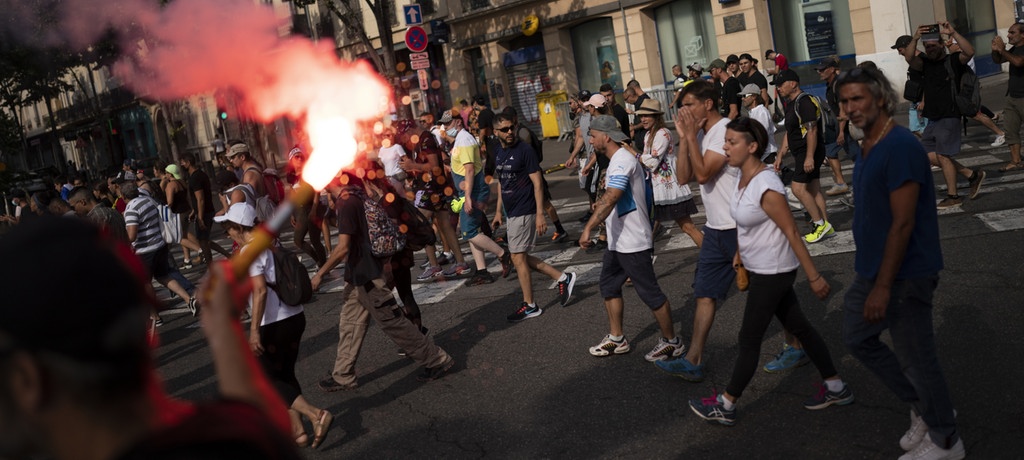In France, the health passport has now been introduced despite ongoing protests.
This must now be carried in order to show a negative test result, proof of recovery or full vaccination protection, to use restaurants and cafés, in some cases shopping centres, fairs, fun fairs and in transport for long-distance travel. Health facilities can also only be entered with it. In addition, vaccinations are mandatory for health and care workers, as well as for firefighters and other rescue workers.
Protests against this have grown rapidly throughout the country in recent weeks, spreading across the country and at last count numbering around 237,000 people. There have also been repeated fights with the police during the protests, which the government has repeatedly attacked on the grounds that it would be mainly right-wing forces that would take part in them. Most recently, pepper spray was used against the demonstrators in Lyon. Water cannons and arrests are not uncommon.
The demonstrators are mainly concerned about the restrictions on their rights; posters read "Our freedoms are dying" and slogans demanding freedom were also always shouted. Mandatory vaccination was also an "unbelievable blow to our basic freedoms, so I don't agree", said one demonstrator. Not only were demonstrations against the Corona measures, calls for the government to resign were heard more and more often. After the crisis of parliamentarism in France became apparent in the extremely low voter turnout in the last local and regional elections, and in view of the presidential elections next year, the government has now relented. It has now been announced that the health passport would also be issued if one took a Corona self-test under medical supervision. Also, instead of 48 hours, the result would now be valid for 72 hours.

